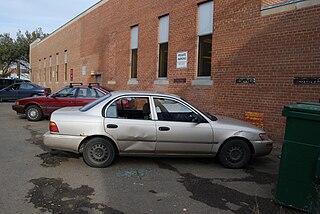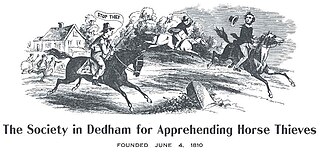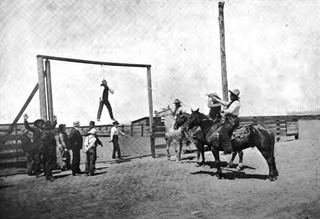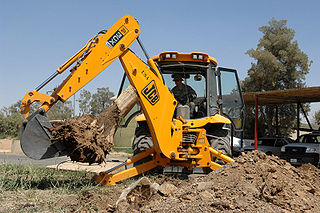Related Research Articles

Identity theft occurs when someone uses another person's personal identifying information, like their name, identifying number, or credit card number, without their permission, to commit fraud or other crimes. The term identity theft was coined in 1964. Since that time, the definition of identity theft has been statutorily defined throughout both the U.K. and the U.S. as the theft of personally identifiable information. Identity theft deliberately uses someone else's identity as a method to gain financial advantages or obtain credit and other benefits, and perhaps to cause other person's disadvantages or loss. The person whose identity has been stolen may suffer adverse consequences, especially if they are falsely held responsible for the perpetrator's actions. Personally identifiable information generally includes a person's name, date of birth, social security number, driver's license number, bank account or credit card numbers, PINs, electronic signatures, fingerprints, passwords, or any other information that can be used to access a person's financial resources.

Shergar was an Irish-bred, British-trained Thoroughbred racehorse. After a very successful season in 1981 he was retired to the Ballymany Stud in County Kildare, Ireland. In 1983 he was stolen from the stud, and a ransom of £2 million was demanded; it was not paid, and negotiations were soon broken off by the thieves. In 1999 a supergrass, formerly in the Provisional Irish Republican Army (IRA), stated they stole the horse. The IRA has never admitted any role in the theft.

Motor vehicle theft is the criminal act of stealing or attempting to steal a motor vehicle. Nationwide in the United States in 2020, there were 810,400 vehicles reported stolen, up from 724,872 in 2019. Property losses due to motor vehicle theft in 2020 were estimated at $7.4 billion. There were 505,100 car thefts in the EU in 2019, a 43% decrease from 2008.
Shi or SHI may refer to:
Domain hijacking or domain theft is the act of changing the registration of a domain name without the permission of its original registrant, or by abuse of privileges on domain hosting and registrar software systems.

Art theft, sometimes called artnapping, is the stealing of paintings, sculptures, or other forms of visual art from galleries, museums or other public and private locations. Stolen art is often resold or used by criminals as collateral to secure loans. Only a small percentage of stolen art is recovered—an estimated 10%. Many nations operate police squads to investigate art theft and illegal trade in stolen art and antiquities.
Laptop theft is a significant threat to users of laptop and netbook computers. Many methods to protect the data and to prevent theft have been developed, including alarms, laptop locks, and visual deterrents such as stickers or labels. Victims of laptop theft can lose hardware, software, and essential data that has not been backed up. Thieves also may have access to sensitive data and personal information. Some systems authorize access based on credentials stored on the laptop including MAC addresses, web cookies, cryptographic keys and stored passwords.

A fence, also known as a receiver, mover, or moving man, is an individual who knowingly buys stolen goods in order to later resell them for profit. The fence acts as a middleman between thieves and the eventual buyers of stolen goods who may not be aware that the goods are stolen.
LoJack is a stolen vehicle recovery and IoT connected car system that utilizes GPS and cellular technology to locate users' vehicles, view trip history, see battery levels, track speeding, and maintain vehicle health via a native app. Prior to selling a vehicle, LoJack dealers can use the system to manage and locate inventory, view and manage battery health, and recover stolen inventory.

Equine influenza is the disease caused by strains of influenza A that are enzootic in horse species. Equine influenza occurs globally, previously caused by two main strains of virus: equine-1 (H7N7) and equine-2 (H3N8). The OIE now considers H7N7 strains likely to be extinct since these strains have not been isolated for over 20 years. Predominant international circulating H3N8 strains are Florida sublineage of the American lineage; clade 1 predominates in the Americas and clade 2 in Europe.. The disease has a nearly 100% infection rate in an unvaccinated horse population with no prior exposure to the virus.

The Society in Dedham for Apprehending Horse Thieves is one of the "oldest continually existing horse thief apprehending organization in the United States, and one of Dedham's most venerable social organizations." Since its founding there have been more than 10,000 members including heads of state, Supreme Court justices, governors, popes, professors, generals, and other notables.

Equine-assisted therapy (EAT) encompasses a range of treatments that involve activities with horses and other equines to promote human physical and mental health. The use of EAT has roots in antiquity, and EAT applies to physical health issues in modern form dates to the 1960s. Modern use of horses for mental health treatment dates to the 1990s. Systematic review of studies of EAT as applied to physical health date only to about 2007, and a lack of common terminology and standardization has caused problems with meta-analysis. Due to a lack of high-quality studies assessing the efficacy of equine-assisted therapies for mental health treatment, concerns have been raised that these therapies should not replace or divert resources from other evidence-based mental health therapies.

Horse theft is the crime of stealing horses. A person engaged in stealing horses is known as a horse thief. Historically, punishments were often severe for horse theft, with several cultures pronouncing the sentence of death upon actual or presumed thieves. Several societies were formed in the United States to prevent horse theft and apprehend horse thieves. However, horse theft continues to occur throughout the world, as horses are stolen for their meat, for ransom, or in disputes between their owners and other persons. Horse theft today is comparable to automobile theft, a crime punishable by felony jail time. Both horses and cars are valuable commodities.

Bike registries are databases of unique, identifying information about bicycles and their ownership. Most registration programs use the unique serial numbers which are permanently affixed to most bicycles during manufacture.
Art theft and looting occurred on a massive scale during World War II. It originated with the policies of the Axis countries, primarily Nazi Germany and Japan, which systematically looted occupied territories. Near the end of the war the Soviet Union, in turn, began looting reclaimed and occupied territories. "The grand scale of looted artwork by the Nazis has resulted in the loss of many pieces being scattered across the world."

Construction equipment theft, is the criminal act of stealing or attempting to steal construction equipment, including all type of heavy equipments. Construction equipment theft has been recognized as a significant problem in the United States and elsewhere in the world, including Canada, Australia, Europe, and Japan.
The International Foundation for Art Research (IFAR) is a non-profit organization which was established to channel and coordinate scholarly and technical information about works of art. IFAR provides an administrative and legal framework within which experts can express their objective opinions. This data is made available to individuals, associations and government agencies.

Until 2019, GadgetTrak was a company based in Portland, Oregon, that developed theft recovery and data protection software under the same name. The company was founded in February 2007 by Ken Westin with the launch of the first theft recovery product for USB mass storage devices, tracking stolen devices including iPods, flash drives, digital cameras and other devices when connected to a computer. The company was issued a patent for the technology on February 24, 2009. GadgetTrak's technology was featured during a special segment by Dateline on iPod theft where they tracked stolen iPods and confronted the thieves. A customized version of the technology was embedded in FLIR thermal imaging cameras as part of an exclusive licensing agreement under the name ThermaTrak utilized for both theft recovery as well as export controls.

In the early morning hours of March 18, 1990, thirteen works of art were stolen from the Isabella Stewart Gardner Museum in Boston. Guards admitted two men posing as police officers responding to a disturbance call, and the thieves tied the guards up and looted the museum over the next hour. The case is unsolved; no arrests have been made and no works have been recovered. The stolen works have been valued at hundreds of millions of dollars by the FBI and art dealers. The museum is offering a $10 million reward for information leading to the art's recovery, the largest bounty ever offered by a private institution.
Art Recovery International is a private company that provides due diligence, dispute resolution and art recovery services to the international art market and cultural heritage institutions. It is headquartered in Venice, Italy.
References
- ↑ What is Stolen Horse International, Inc™ accessed on October 13, 2008
- ↑ What If Your Horse is Stolen? accessed October 17, 2008.
- ↑ Horse Heist! accessed October 17, 2008.
- ↑ Jessica Jahiel's Horse Sense accessed October 17, 2008
- ↑ Found Horses--Missing Owners
- ↑ Hurricanes Katrina, Rita Equine Relief Information accessed October 13, 2008
- ↑ Stolen Horse International Announces Court Victories
- ↑ Who is Debi Metcalfe accessed October 13, 2008
- ↑ Angela C. Kirby (2006). "The Power of One Horse". Gaited Horse Magazine (Winter): 10–13.